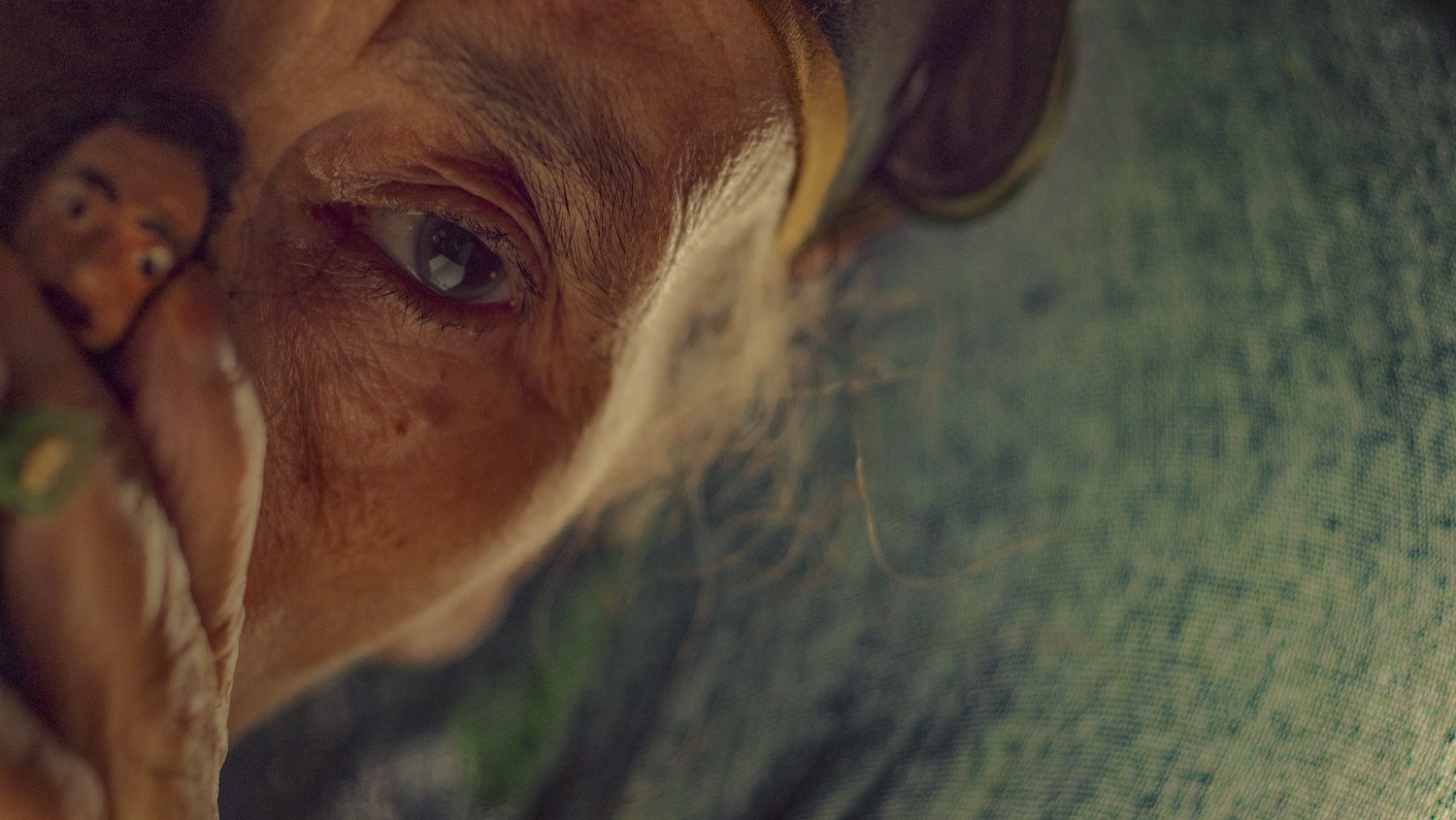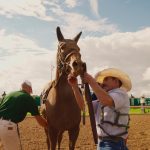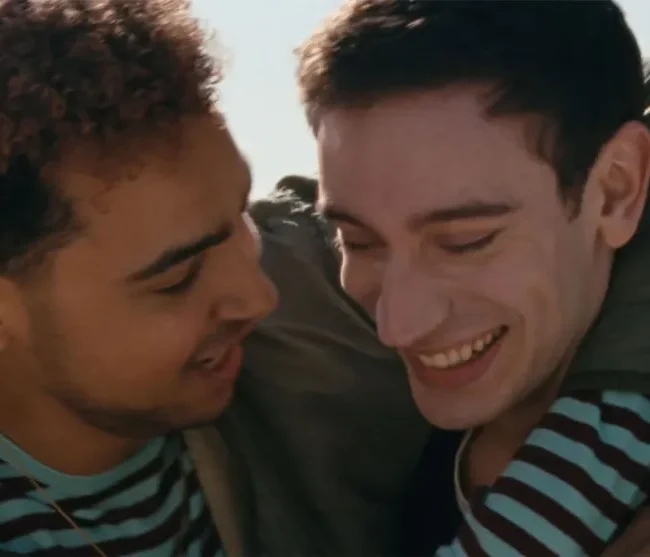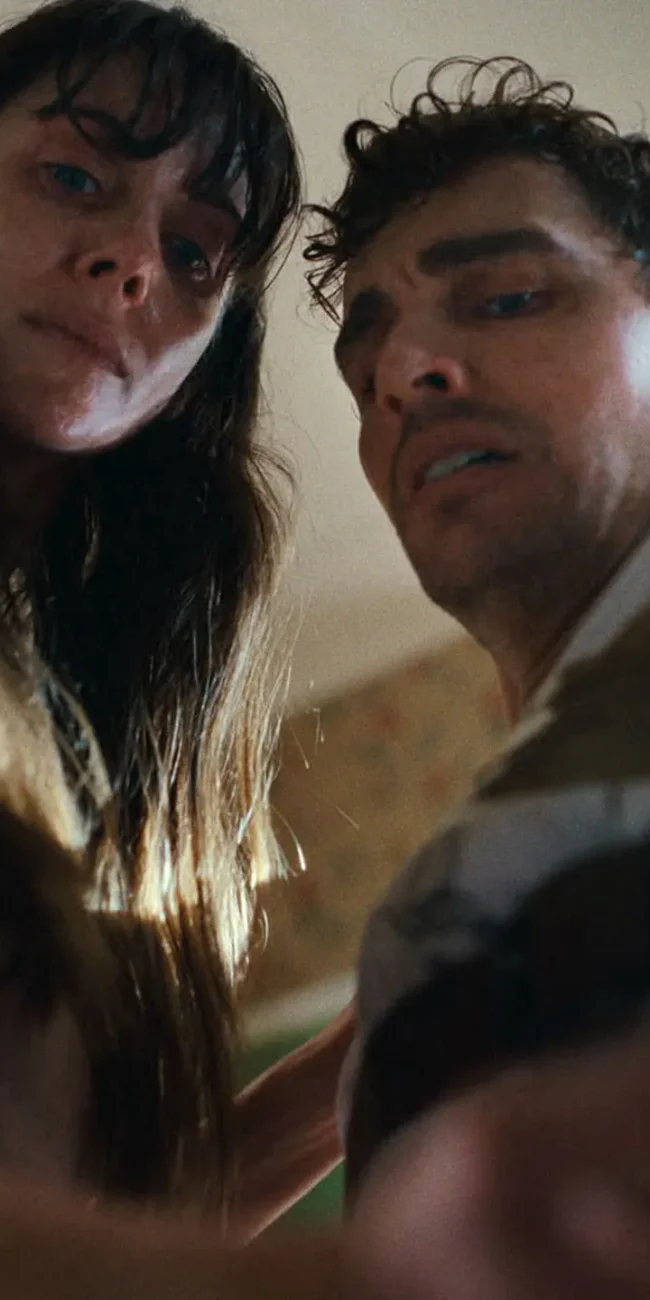THE MOTHER OF ALL LIES

(The 2024 Sundance Film Festival runs January 18-28. Check out Chris Reed’s movie review of The Mother of All Lies. Seen it? Join the conversation with HtN on our Letterboxd Page.)
To paraphrase Russian author Leo Tolstoy’s famous opening sentence in Anna Karenina, complicated family dynamics arise from circumstances wholly unique to those families. In Moroccan filmmaker Asmae El Moudir’s second feature, The Mother of All Lies—following her 2020 The Postcard—she explores the roots of her own family unit’s unhappiness while simultaneously reaching for catharsis. That she succeeds is remarkable, not only because of the specific trauma that all most overcome, but also because her methods are so delightfully unorthodox.
They are also very cinematic. Taking a page from highly effective “sandplay therapy” techniques, El Moudir brings her cantankerous and imperious grandmother, father (grandma’s son), mother, and two neighbors into a warehouse where she and dad have recreated the neighborhood in which they all (minus the not-yet-born Asmae) lived in 1981. That was the year that the Moroccan regime violently cracked down on protests over the price of bread.
There is more to work through, however, than the bloody aftermath of that era. Other questions emerge throughout the film, such as why grandma is so opposed to photographs and so despotic in her treatment of others. She has deep wounds of her own with which she wrestles, however unwillingly. To call her recalcitrant would be an understatement. “A dictator who oppresses everyone” is one description uttered about her in the film, and given what we see, it rings true.
As the title indicates, everyone has secrets, and at the center of it all is one big fiction, told to provide order and reason in a world of seeming chaos. Yet by denying the truth of who one is, nothing gets resolved. The greatest lie is when we tell ourselves that safety and security trump everything, which they don’t. And there is no refuge to be found in falsehoods.
What impresses the most here are the models, mostly built by El Moudir’s father—a master craftsman—and used, along with copious human figurines, to stage past events. We also watch a form of performance art beyond those recreations; for example, one of the two neighbors—Abdallah—recalls his own imprisonment and torture post-1981, recounting what he suffered through spoken-word anguish. And when they all remember another neighbor, Fatima, who died during the crackdown, there are more tears.
It is, in short, a highly engaging journey through memory and healing, the protagonists, including the director, quarreling and making peace with grief and time. Perhaps all families should gather in this way, as the potential for reconciliation outweighs the stress involved. Then again, we don’t all have such a brilliant miniature set of our own lives ready for therapy. Perhaps it’s not too late to start building one.
– Christopher Llewellyn Reed (@ChrisReedFilm)
2024 Sundance Film Festival; Asmae El Moudir; The Mother of All Lies











